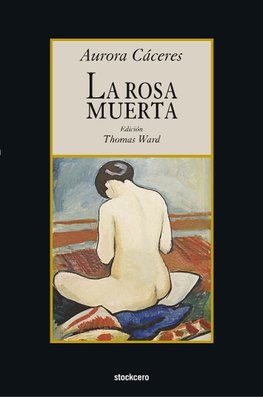
-
 Španielsky jazyk
Španielsky jazyk
La rosa muerta
Autor: Aurora Caceres
Aurora Cáceres' compelling novel "La rosa muerta" was set in Paris where it was published in 1914. In a work sharing formal characteristics with modernista prose, Cáceres challenged the ideological parameters of the movement. While her protagonist appropriated... Viac o knihe
Na objednávku
24.38 €
bežná cena: 27.70 €
O knihe
Aurora Cáceres' compelling novel "La rosa muerta" was set in Paris where it was published in 1914. In a work sharing formal characteristics with modernista prose, Cáceres challenged the ideological parameters of the movement. While her protagonist appropriated the modernista precept of women as subjects to male veneration, she also took active control of her sexual life in a world where husbands still treated their wives as objects. The objects in this novel are not people but implements of communication and medicine, reflective of the apogee of the industrial age. The action, which takes place between Berlin and Paris, is representative of the places that the modernistas held dear, but the feminization of the portrayal of male-female relations broadens the scope of the male-dominated modernista literary paradigm. The ideal men in this novel are not the husbands from whom women run, but medical doctors, men of science who are liberated from chauvinist attitudes. The central character of "La rosa muerta" accordingly falls for one of her gynecologists, allowing for scenes in the Paris clinic that must have been scandalous for the 1914 reading public.
This novel's author Aurora Cáceres (1877-1958) has been unjustly forgotten as an interesting adherent of the modernist movement. This European-based daughter of a Peruvian president wrote novels, essays, travel literature and a biography of her husband, the Guatemalan novelist Enrique Gómez Carrillo. Her life itself is intimately intertwined with Peruvian history, the War of the Pacific (1879-1883), the Peruvian Civil War of 1895, and an intellectual's exile in Paris. Her essays have recently begun to receive critical attention by scholars attempting to understand modernism from a gendered perspective.
With its enlightened female protagonist, its scientific men, and its praise of technology (electric lights and pneumatic mail tubes), "La rosa muerta" appropriates modernista literary traditions and liberates them in a riveting narrative that will certainly engage today's undergraduate students. Its length (of only 80 pages), makes the text suitable for upper-level Spanish courses. The novel is especially appropriate for survey classes as well as for courses on the novel and modernismo, broadening the horizons for what have traditionally been male-centered reading lists. It will also be of interest to graduate students attempting to understand literary modernism from a gendered perspective. It is also an appropriate object of study for researchers interested in gender studies, the development of the novel, and in modernismo.
This new modernized edition will be a pleasant reading for undergraduate and graduate students. Its Spanish has been updated to agree with present-day usage and it comes in a thoroughly annotated edition with copious footnotes to explain obscure cultural and linguistic turns of the text. The editor, Thomas Ward, also offers a complete introduction that locates Cáceres in both modernista and Peruvian traditions. Ward, well known for his studies on fin-de siècle Peruvian authors, also suggests some avenues for future research. His selection of "La rosa muerta" will please scholars and students alike as the one-hundred year anniversary of this novel draws near.
- Vydavateľstvo: Stockcero
- Rok vydania: 2007
- Formát: Paperback
- Rozmer: 229 x 152 mm
- Jazyk: Španielsky jazyk
- ISBN: 9789871136612
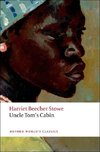
 Anglický jazyk
Anglický jazyk 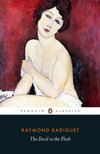
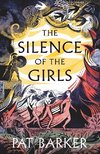





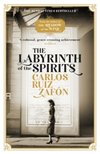




 Nemecký jazyk
Nemecký jazyk